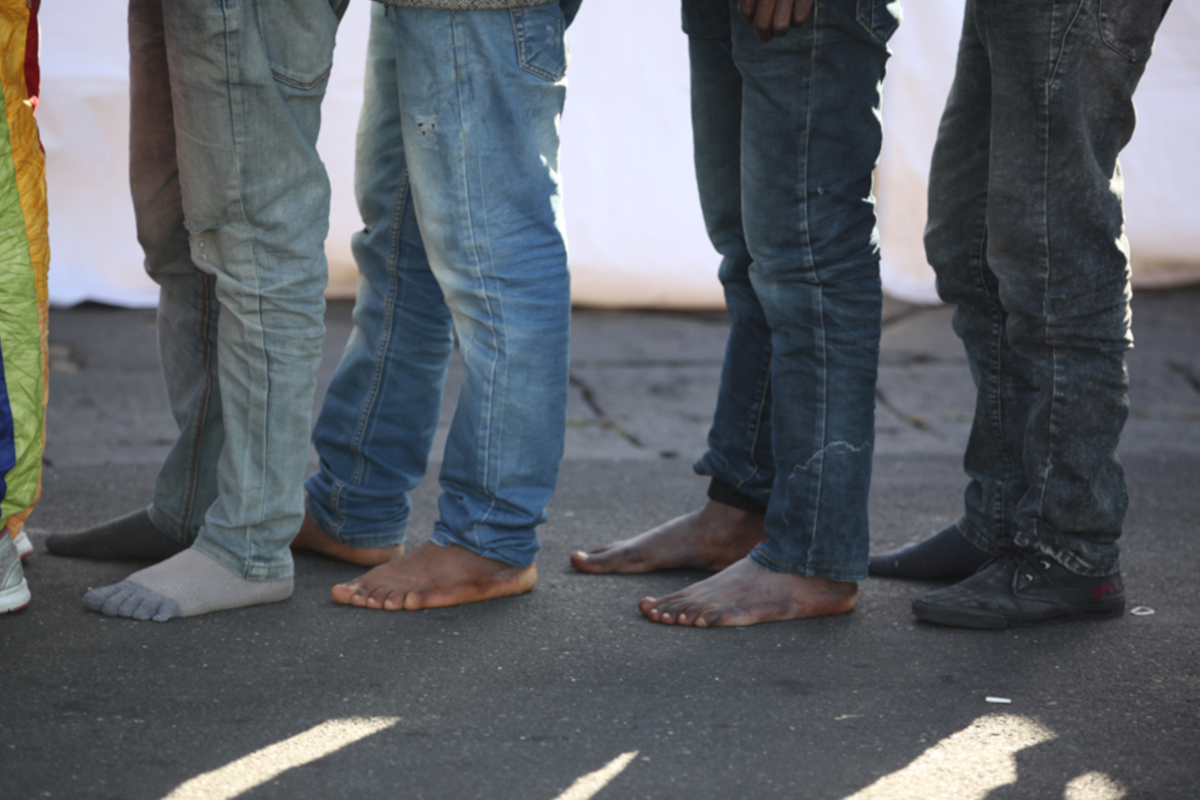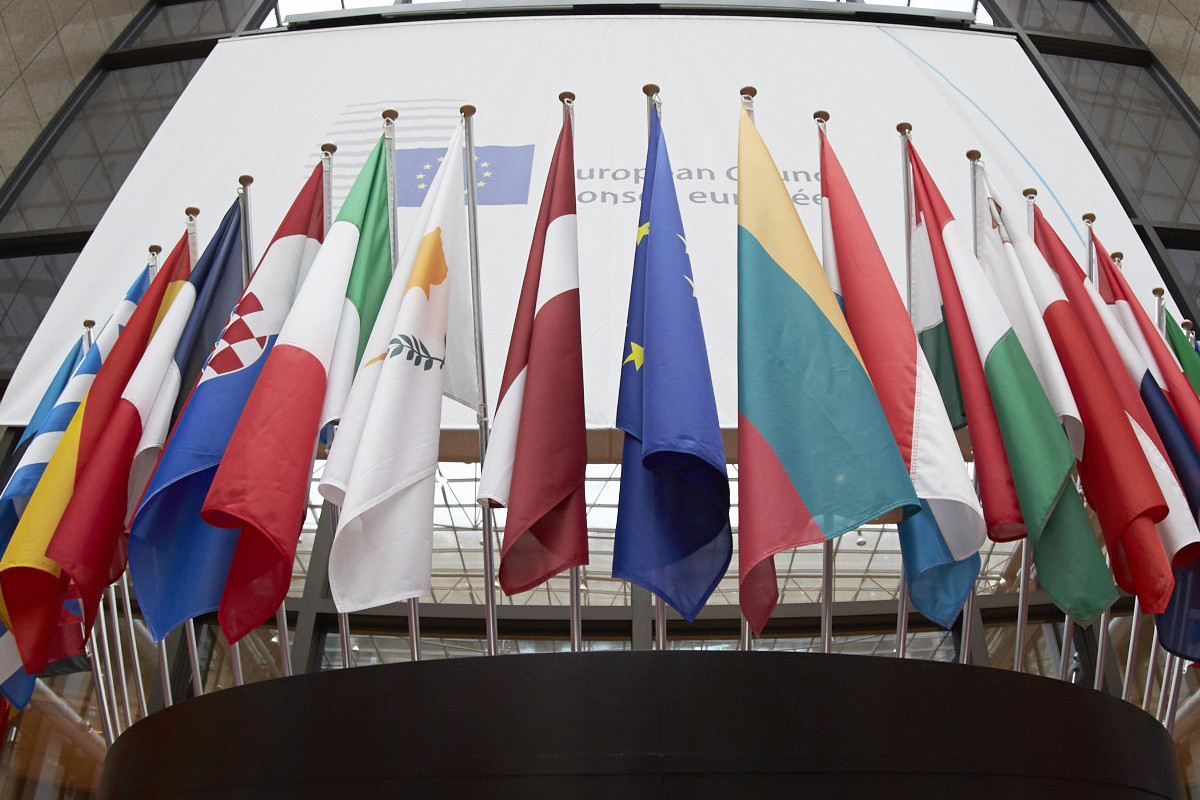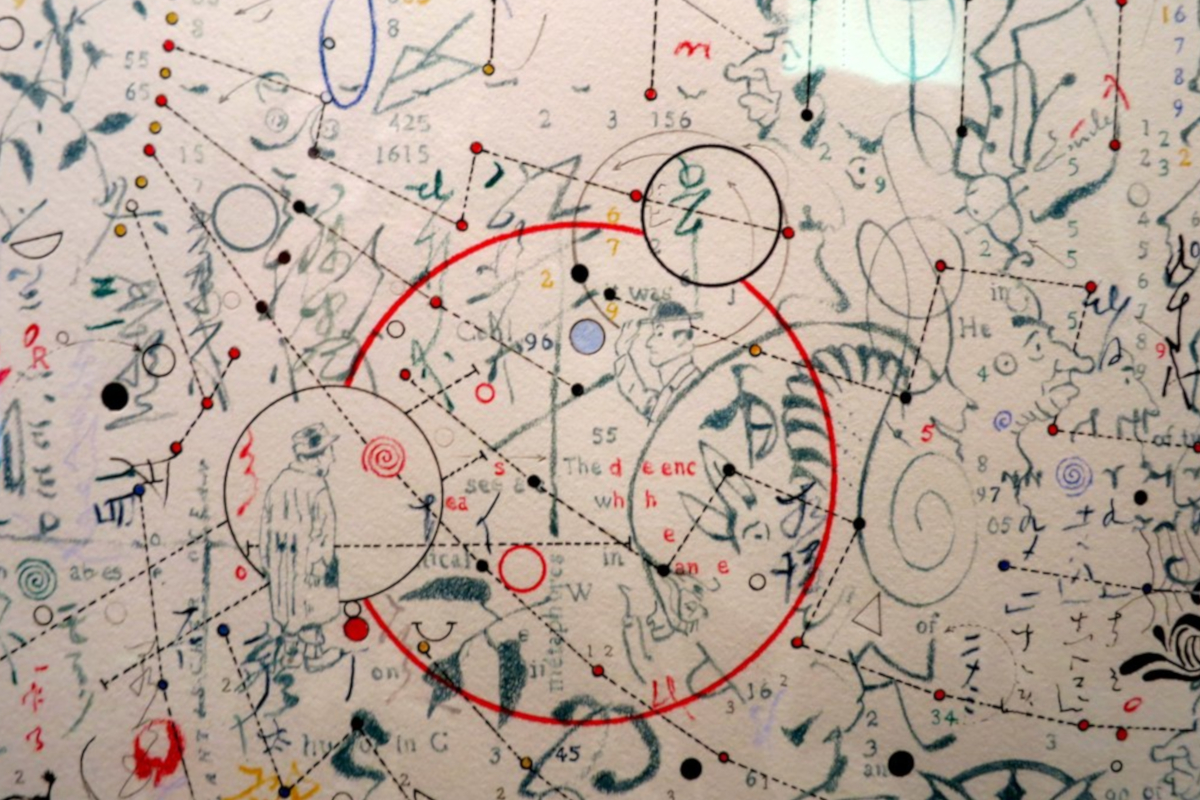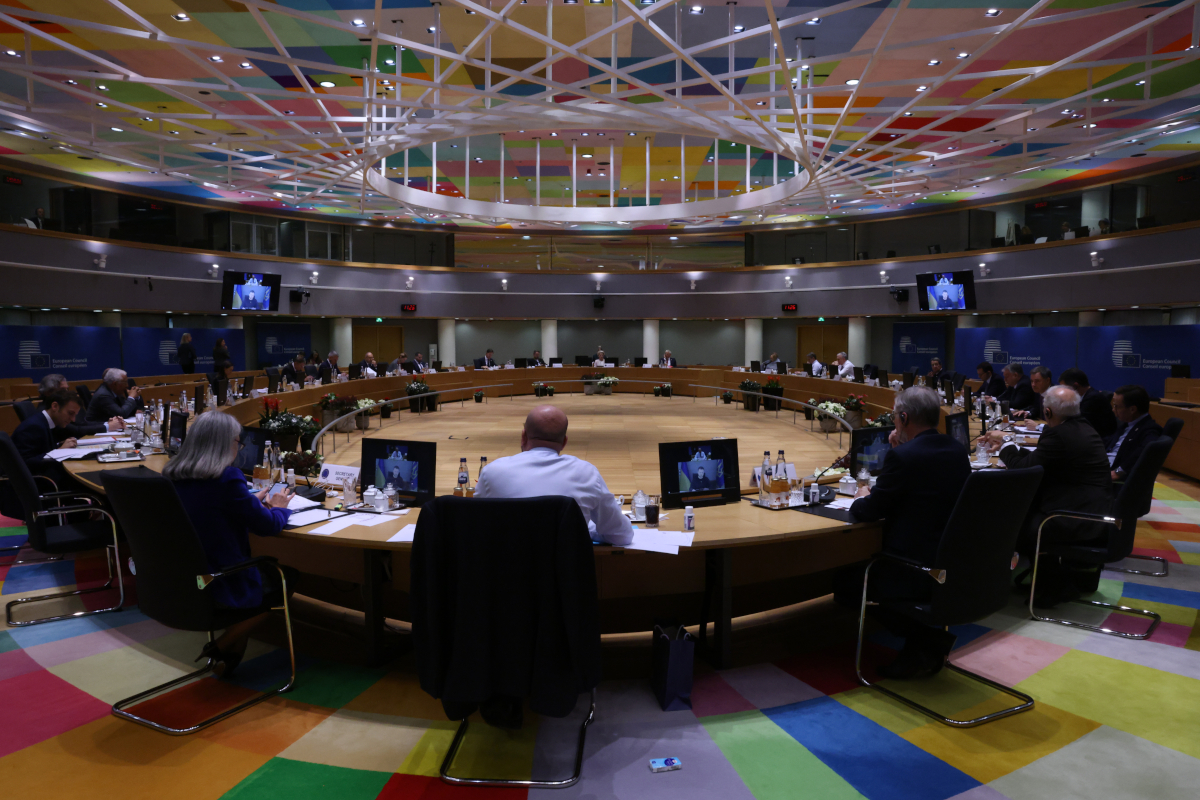EU: Tracking the Pact: Only 207 refugees relocated so far via “voluntary solidarity mechanism”
Topic
Country/Region
31 January 2023
The solidarity is voluntary, and there’s not enough of it to go around. Six months ago the EU established a “voluntary solidarity mechanism” for relocating refugees from states such as Italy, Greece and Malta. Now an internal Commission paper states that the entire scheme could be in jeopardy due to a failure by other EU member states to actually accept people for relocation. So far, only 207 people have benefited from the scheme.
Support our work: become a Friend of Statewatch from as little as £1/€1 per month.

Image: IFRC, CC BY-NC-ND 2.0
The comment comes in the minutes of a December meeting of the “Solidarity Platform ‘Pact’” (pdf) set up to coordinate the process of relocation:
“…the continuous registration of candidates without sufficient transfers can jeopardize the relocation scheme (notably with the risk of increasing absconding or renunciations if relocation candidates wait for too long, resulting in a general loss of trust in the mechanism).”
There are echoes of what happened with the relocation scheme set up after the “crisis” of 2015, although that scheme failed in large part due to the creation of strict selection criteria that meant there were insufficient candidates for relocation in the first place. [1]
In the case of the voluntary solidarity mechanism, as of 1 December only 207 people been transferred, all of them from Italy, with the Commission noting that across the “Med5” countries (Cyprus, Greece, Italy, Malta, Spain) there were “around 600 pre-acceptances but very few transfers, leading to a rather disappointing result for the end of 2022.”
The contrast with the response to the arrival of refugees from Ukraine could not be starker. As a representative of borderline-europe, who have conducted extensive research on EU relocation schemes, commented to Statewatch: “we are critical of the connection between civil Search and Rescue Operations and relocation mechanisms as it constructs different categories of asylum-seeking persons based on how they arrived.”
“Bottlenecks”
While states’ unwillingness to accept relocations may be the main cause for the “disappointing” results, the paper also highlights a range of “bottlenecks” to ensuring people can be transferred out of the Mediterranean states.
Some of these have already been dealt with, the document states, such as “the need to channel relocation candidates to a few relocation hubs, where procedures can be centralised, and the related activation of internal transfers from Lampedusa to facilitate the relocation process” (emphasis in original).
In 2015 and 2016 “hotspots” were set in Greece and Italy under the pretext of relocations that largely failed to materialise; the “relocation hub” has the distinct ring of another detention and sorting structure.
Bottlenecks that have not yet been dealt with include a failure by member states to allocate sufficient resources to relocation; and “sometimes restrictive preferences expressed by pledging States,” meaning “it is not always possible to match suitable candidates with the active pledges.”
The document contains an example of just such a restrictive preference – the Norweigan authorities want “to avoid a direct link with search and rescue operations conducted by NGO vessels.”
The Commission also points to the need for both the “benefitting and the relocating States” to ensure swift registration and processing; and raises the possibility of allowing “remote security checks/interviews” by relocating states, as relocation candidates will already have been subject to security checks, “often with the operational support of Frontex and Europol.”
Time is also of the essence, says the document: the Commission wants swifter acceptance of final candidates after they have been proposed, which would “help reducing the number of candidates absconding.”
Other problems have arisen from divergent practices in compiling files containing fingerprints and other personal data and the carrying out of preparatory activities in sequence, rather than in parallel.
The final “bottleneck” highlighted by the Commission concerns a basic right of those in the relocation procedure: “the need to ensure reliable and consistent information provision to candidates on the relocation process, including by ensuring regular feedback to the candidates on the status of their files.”
Relocation lottery
The organisation borderline-europe has been tracking the implementation of relocation schemes over the last few years, and has found multiple human rights failings in schemes ostensibly designed to relocate people from Italy and Greece.
A representative of borderline-europe told Statewatch that the document shows it is “irresponsible for the EU to continue to insist on temporary ad hoc relocation mechanisms when those mechanisms have been falling short of the EU’s promises again and again.”
“A sustainable solution responding to the so-called Med5 countries’ desire to share common responsibility for persons seeking international protection across the EU would require putting an end to the Dublin regulation and allowing asylum seeking persons free movement to the country in which they intend to apply for asylum within the EU,” they said.
The representative also criticised the proposal to conduct more interviews online, noting that borderline-europe’s research has shown that “the selection of relocation candidates follows arbitrary procedures, and the interview process causes a great deal of stress to traumatized persons.”
Rather than conducting interviews online, member states should be “only conducting asylum interviews after persons are transferred, or even better, when they have reached their destination autonomously,” they argued.
National positions
The member states, on the other hand, have no such radical changes in mind.
The Italian authorities appear to be backing up the Commission’s call for swifter and more efficient procedures, and wants relocating states to “avoid restrictive preferences on nationalities”. Rome has also requested that it be “kept informed about the grounds leading to rejections of take charge on security grounds.”
The German authorities are willing to consider “potential for acceleration through revision of SoPs” – standard operating procedures – but note that additional interviews are “important”. Norway appears to take the opposite position, questioning “whether there is a need for additional interviews at all.”
Germany also argued that “other potential for improvements lies outside its area of intervention, like the procedures to share the NIST files, to be received ideally two weeks before the interviews.”
Likewise, France sees the possibility for increasing the number of relocation as depending on “the availability of interpreters and offices in beneficiary States.”
The minutes refer to "a draft workflow on the relocation of Unaccompanied Minors (UAM)... to be discussed at a next technical meeting on relocation."
During the December meeting, only Malta expressed interest in the possibility of relocating unaccompanied minors, whom the minutes state "would deserve priority under the VSM."
The Commission “will further reflect, on the basis of this discussion and of bilateral exchanges with the Member States with more extensive experience on relocations, on possible concrete proposals for modifications of the SOPs.”
The revision of the SOPs was one of the commitments contained in the Central Mediterranean Action Plan adopted in late November, which also states that “links between the voluntary solidarity mechanism and actions envisaged in the external dimension of migration will also be strengthened.”
Documentation
- European Commission, 'SOLIDARITY PLATFORM ‘PACT’THURSDAY, 1 DECEMBER 2022 OPERATIONAL CONCLUSIONS' (SENSITIVE, undated, pdf)
Note
[1] On how relocations were initially subordinated to other concerns: Commission requires large scale abuse of migrants for relocation to proceed; Eighth report on relocation and resettlement: Commission welcomes increase in relocations and ignores harmful systematic effects, January 2017; and 9th report on relocation and resettlement: Mystification and selective use of data in effort to present a dysfunctional approach as "sustainable", March 2017
Our work is only possible with your support.
Become a Friend of Statewatch from as little as £1/€1 per month.
Further reading

Tracking the Pact: Czech Presidency's "way forward" on new laws, mechanisms and Dublin transfers
A note circulated by the Czech Presidency to the Council's Strategic Committee on Immigration, Frontiers and Asylum (SCIFA) at the end of November.

'Voluntary Solidarity Platform' for relocating refugees failing to meet targets
On 22 September the European Commission hosted a meeting on the "Voluntary Solidarity Mechanism" (VSM), the latest ad-hoc system set up to relocate refugees from the EU's Mediterranean member states to other member states. It appears that the speed of transfers is not as quick as is hoped, with the conclusions noting that it is "crucial that all Member State initiate to implement the pledges," with the need for "a higher pace of transfers already ahead of the December Council meeting."
Spotted an error? If you've spotted a problem with this page, just click once to let us know.
